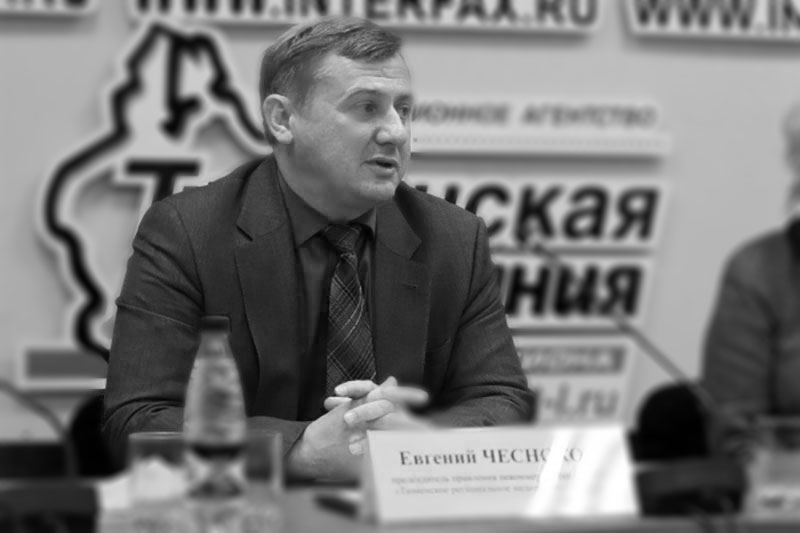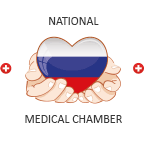The First Ever Mutual Insurance Society in the Russian Healthcare Industry
The Central Bank of Russia granted a license to the non-profit organization Medical Consumers Society of Mutual Insurance"for carrying out civil third party liability insurance in the form of voluntary insurance.The organization was established under the Association "Tyumen Regional Medical Society", which is part of the National Medical Chamber. It was established to implement a pilot project on insuring liability of medical organizations in the Urals Federal District.

The Vice-President of NMC, the Chairman of the Coordinating Council of the Ural Federal District, the non-profit partnership "Tyumen regional medical society", the Chairman of the Board Eugene Chesnokov
The Mutual Insurance Society (MIS) is a brand new insurance tool for the Russian public healthcare system. Its prime objective is to establish mechanisms for compensating for the damage to patients caused byHCPs professional errors. Mutual insurance is a non-profit insurance fund that secures proprietary interests of its members by accumulating required resources. The insurance fund is an inseparable part of self-regulating professional activities. Mutual insurance is not aimed at making profits but makes it possible—which is important for the institution — to build up reserves through years of its existence, which allows significantly reducing future insurance premiums and contributions payable by MIS members.
Leonid Roshal, President of NMC, noted: "For many years we have been trying to solve an extremely challenging situation in the medical community. Developed countries no longer face this issue. Every HCP in those countries can have their responsibility insured to feel protected when sued for damages caused by even negligence. Foreign HCPs certainly pay significant contributions to insurance companies. We cannot afford this. I do not think we have more than5%-10% of HCPs amongst us who can afford paying such contributions for the sake of feeling protected. Most of public healthcare professionals cannot. Commercial insurance is extremely expensive. Therefore, we have created a cheaper tool for HCPs called the Mutual Insurance Society under the National Medical Chamber. The number of claims against us has increased manifolds.
Given the today's level of MIS development, the insurers (the insured) are medical establishments that ensure their personnel or private practitioners licensed for delivering medical services. An insurable event under medical professional liability insurance is the emergence of an obligation of the insurer (the insured) to compensate for the damage caused to the life and health of a patient in the course of delivering professional healthcare services.
It is worth stating that the Russian system does not see a healthcare practitioner as a subject of civil law relations. HCPs only bear professional responsibility under the criminal code. These are legal entities—medical institutions and private practitioners—that bear responsibility to patients. However, the medical insurance organized by the NMC in the form of MIS is already capable of not only reducing the financial burden on healthcare establishments, but also protecting HCPs.
According to the NMC experts, no other mechanism exists today to deal with patient s suits rather that initiating acivil or criminal proceeding. Given the enormous amounts claimed by patients from medical establishments, the latter prefer to shift the responsibility onto the HCP and initiate a criminal proceeding against their HCP to reduce their financing expenditures.
This is a much more transparent mechanism for even patients. It does not depend on whether or not the medical establishment and the HCP can achieve any consensus. — noted Evgeny Chesnokov, Vice-President of the NMC, and Chair of the Board of the Association "Tyumen Regional Medical Society".
